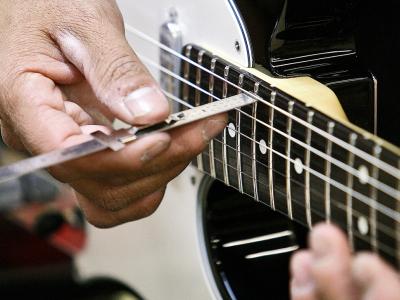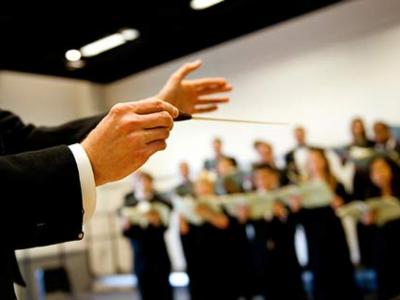What does a Music Teacher PK-12 do?
It's impossible to overstate the impact and importance of music teachers—not just on aspiring musicians but also on the continued evolution of music culture and tradition. In addition to helping develop instrumental technique, music educators offer their students a richer understanding of music—both history and theory—an avenue for self-expression, and a host of cognitive benefits including enhanced language development, fine motor skills, memory, and academic achievement. They also lead school bands and orchestras, picking and developing the repertoire and shaping the performance as a conductor.
Those who work as general music teachers are expected to be proficient in many instruments and have a diverse skillset including conducting, composition, improvisation, and more.
Music is a core part of PK–12 education around the world. School music teachers work in a variety of settings and with a vast range of students, from preschoolers banging a drum for the first time to accomplished pianists perfecting Beethoven's sonatas. A music teacher might adhere to a particular instruction method, such as Suzuki or Kodály, or simply tailor lessons to the needs and desires of their students.
Most focus on instrumental and vocal technique, reading sheet music, ensemble coaching, and helping students prepare for concerts, recitals, and auditions. A teacher may begin a kindergartner's music education with an exploration of city and nature sounds, singing nursery rhymes, and mimicking dynamics with body movements before introducing instrument instruction (in the United States it's often recorder or keyboard), classes in the elements and history of music, and ensembles such as chorus, orchestra, and jazz band.
At a Glance
Most jobs in K–12 schools and academies require a teaching certificate or degree, in addition to whatever musical training the applicant possesses. Certification and licensing practices vary from state to state, so aspiring music teachers should be sure to obtain information about certification exams and license transfers at each state's Department of Education website.
Music teachers might specialize in common instruments—as piano teachers or chorus teachers, for example—or in a specific age or type of student, such as early childhood education or adaptive arts education. Those who work as general music teachers are expected to be proficient in many instruments and have a diverse skill set that includes conducting, composition, and more. As they gain significant experience and respect, music teachers might move from the classroom to a department head position, overseeing the school's, or perhaps the entire district's, music curriculum.
Music teachers work at public and private schools, music academies, community music schools, and for-profit music programs. These positions are usually advertised online on music education websites and listservs. Music teachers who aren't quite ready for the classroom yet might consider giving private lessons to build skills, confidence, reputation, and a résumé.
- Music performance
- Broad knowledge of instruments
- Music theory
- Reading and writing music notation
- Music history
- Conducting
- Piano
- Written and verbal communication
- Organization
- Public speaking
Like all teachers, music educators are well-served by patience, enthusiasm, and dedication. Those who work with serious young musicians should possess great discipline and a drive for excellence in order to inspire the same in their students. Organizational skills are necessary for creating effective lesson plans as are communication skills for getting them across.
Teachers in a school setting work regular and predictable hours, receive steady wages, and mainly work at the same location. Competitions, student recitals, and concerts may lead to additional hours.










